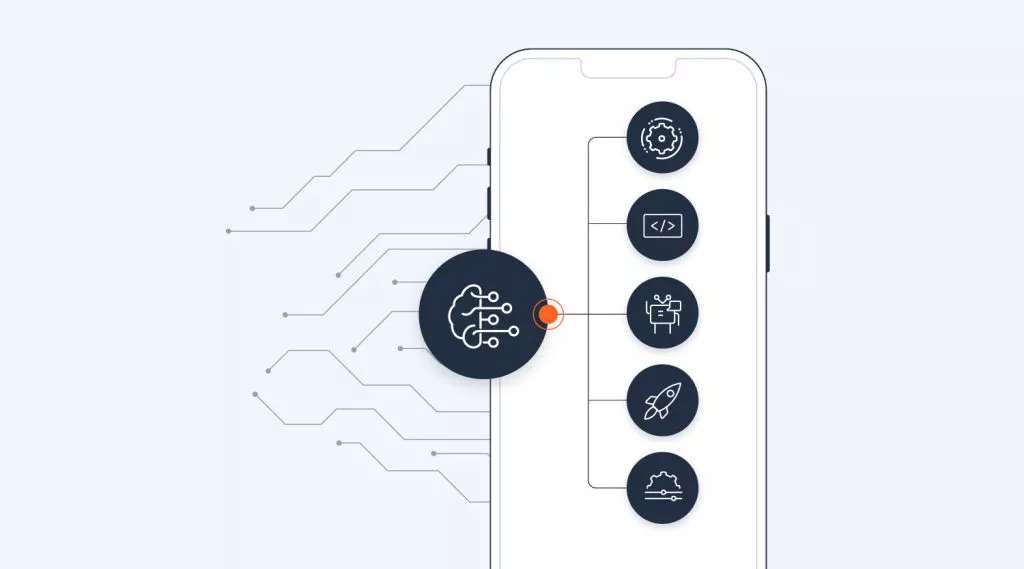Blog
Develop and grow customer relationships over any channel, any device, anywhere. Powered by Infobip full-stack cloud communication platform
Results for
results found

WhatsApp banking: 19 examples for better customer experiences
Deep dive into the world of banking via WhatsApp and learn about benefits, best practices, use cases, and how to get started.

What is smishing and how to prevent it
Read about smishing, one of the biggest threats to the mobile industry, and learn what mobile operators, brands, and users can do to protect themselves.

Top trends for the future of B2C communication
Find out what technologies will power the future of business-to-consumer messaging, and how our solutions are built to help you adapt to these changes in customer communication.

Omnichannel retail strategy for transformed customer experiences
Transform customer experiences with this omnichannel retail strategy for improved customer journeys and a smoother path to purchase.

WhatsApp marketing: Best practices and strategies for 2024
How to craft an effective WhatsApp marketing strategy that incorporates the apps latest features and tools designed especially for business.

A complete guide to SMS fraud detection and prevention
Learn about the latest SMS fraud tactics criminals are using, how they work, and how they can be prevented.

Apple to support RCS in 2024: Everything we know so far
Apple announced it will support RCS on iOS devices in 2024. Find out what it could mean for the future of messaging.

Understanding large language models vs. generative AI
Uncover the differences between large language models and generative AI and how these tools can be leveraged by businesses.

Blink: How AI-powered neobanks are changing the game for banking
Learn how Blink, an AI-powered neobank is transforming banking and setting a new standard for customer satisfaction and convenience.

Zalo for business: The complete guide
Discover Zalo, Vietnam’s top messaging app, and learn how it can enhance your business’ communication in the Vietnamese market.

Sora: All about text-to-video AI and what it could mean for businesses
Discover about OpenAI’s text-to-video model, Sora, and what potential it holds for improving customer experiences.

Why your hotel needs a chatbot
Learn how artificial intelligence is disrupting the hospitality industry and how chatbots can help hotels exceed customer expectations while lowering costs.

From clicks to conversations: How Hagens is driving retail success with conversational marketing
Dive into the world of conversational marketing in the retail sector with Hagens. See how they are leveraging this strategy to boost conversions and build meaningful relationships with customers.

Quick and easy chatbot templates
Read on to learn more about chatbot templates: benefits, usage, and best practices for seamless integration.

From hype to hero: How chatbots can revolutionize your bank’s customer experience
Dive into practical applications of banking chatbots, voice-activated solutions, and generative AI that are already transforming banking experiences.

WhatsApp marketing messages: How to build stronger customer connections with Meta’s new limits
Meta has introduced new limits to the number of marketing messages businesses can send to a customer. Find out how the right communication tools can turn these new limits into an opportunity instead of a threat for your business.

19 of the best free AI courses you can start today
Level up your AI and machine learning knowledge in 2024 with our curated list of the best free courses and resources available on the web.

How to design and build an SMS chatbot
Everything you need to know about SMS chatbots, including what makes them so useful, and a step-by-step guide to building one.

The retailer’s guide to customer engagement
Learn everything you need to know about customer engagement and how retailers can drive success a digital world.

Tips and tricks for a successful GenAI strategy
Discover the latest tips and tricks for implementing a successful GenAI strategy, straight from Google’s Data and AI Engineer, Jelena Mijuskovic.

Beyond Automation: How insurance chatbots can provide a conversational experience
Conversational and generative AI are set to change the insurance industry. Read about how using an AI chatbot can shape conversational customer experiences for insurance companies and scale their marketing, sales, and support.

Securing the on-demand ride-sharing and food delivery journey for customers and drivers
Find out the best ways to offer a secure customer journey for on-demand ride sharing and food delivery services.

Demystifying finance AI chatbots for fintech firms
Finance AI chatbots are redefining how financial businesses serve customers. Does this mean your fintech company needs a finance AI chatbot? Find out in this blog.

The marketer’s playbook: Winning customer retention strategies to drive sustainable growth
Customer retention is often overlooked as a critical component of business growth. Here’s how retaining existing customers can help businesses expand faster than by just focusing on new customer acquisition.

Chatbot for marketing: How to get started?
Ready to boost your marketing game with a chatbot? Learn the basics of getting started with chatbots and how they can benefit your business.

How omnichannel banking drives customer engagement in retail banking
Participants in a recent survey said banks aren’t engaging retail customers. Here’s how omnichannel banking can help engage retail banking clientele.

Status Data: Security and privacy in conversational banking
Discover the challenges and solutions for secure conversational banking. Get expert insights from Stephen Gilmore, owner of Status Data.


